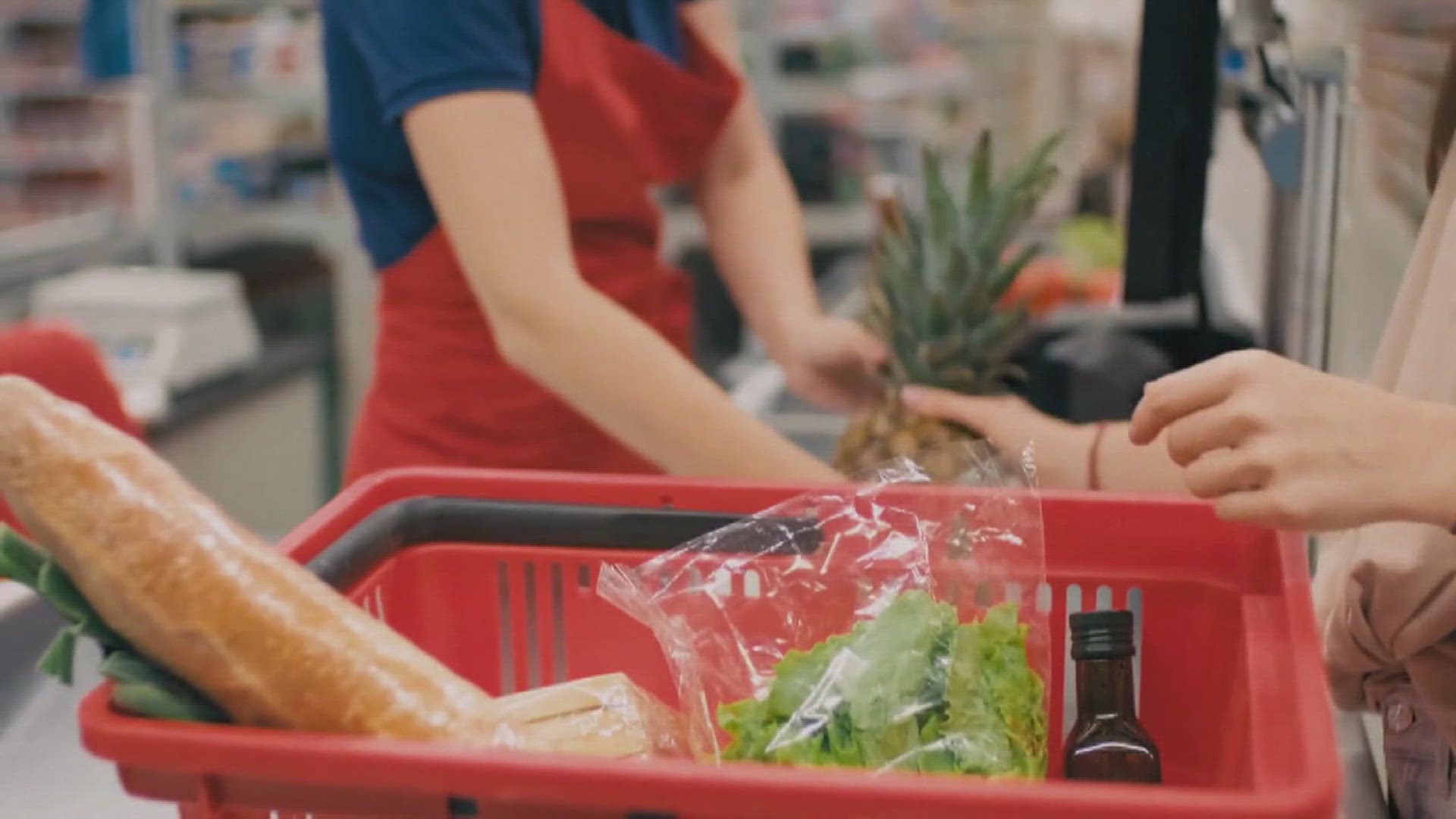DAVENPORT, Iowa — We're just about a month away from Election Day. If you live in Iowa, you may have seen a political ad from the Mariannette Miller-Meeks campaign set in a grocery store. It claims the price of eggs has doubled, bread is up 27%, hamburger meat is up 27% and gas is up 55% — all because of the Biden-Harris Administration's economic policies.
THE QUESTION
"My question is about the current commercial where Marionette Miller Meeks gives supposed statistics on inflation caused by the Biden/Harris administration in a grocery store setting. Are these statistics accurate and are they attributed directly to Biden/Harris?"
THE SOURCES
- U.S. Bureau of Labor Statistics
- U.S. Energy Information Administration
- U.S. Department of Agriculture
- Patrick De Haan, head of petroleum analysis at GasBuddy
- David G. Surdam, economics professor at the University of Northern Iowa
- Jonathan Coppess, associate professor of agricultural policy and law at the University of Illinois
THE ANSWER
Grocery and gas prices have gone up, but there are several factors that drive inflation.
WHAT WE FOUND
Let's look at gas prices first. They've definitely gone up, but depending on what data you use, percent increases can look different.
We used the national average price when Biden took office in January 2021, and the most recent data from September 2024. From $2.420 to $3.338, that shows a 40% increase.
Patrick De Haan, head of petroleum analysis at GasBuddy, said that the increase is caused by multiple factors.
"This is not due to a single politician, this is simply due to the seismic shift brought on not only by the pandemic but also Russia's war in Ukraine," De Haan said.
The pandemic caused a sudden drop in demand. After the vaccine came out, demand went up, and so did prices. But ultimately, he said the global oil market drives oil production, not the president.
Grocery prices are also impacted by gas prices. Jonathan Coppess, associate professor of agricultural policy and law at the University of Illinois, said transportation and production equipment all need gas or diesel to run.
"The gasoline and diesel fuel and the oil costs are huge, from everything, the diesel in the tractors to the diesel in the semitrucks delivering it, to elevators and processors, all the way down the grocery stores," Coppess said.
University of Northern Iowa economics professor David G. Surdam said labor costs went up too, with 1-2 million fewer workers post-pandemic. Low interest rates from the Federal Reserve and avian flu also raised grocery prices. But he doesn't think policies like the Inflation Reduction Act are one of them.
"I'm not sure that's had enough time to really work its way through the system," Surdam said.
Coppess said the bill's investments in renewable energy and manufacturing will ease transportation costs in the future.
"Well those things don't get built in a day, and they're certainly not going to change the price in a grocery store, you know, in the near future," Coppess said.
He also said wages have been increasing, but not at the same rate as inflation. That puts more pressure on consumers.
Compared to the price changes in the ad, U.S. Bureau of Labor Statistics data shows a similar national price increase since 2021 for bread at 26%, eggs at 118% and ground beef at 40%.

